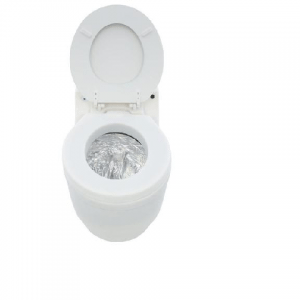
Agriculture
December 20, 2023
Laveo Dry Flush Toilet
Read SolutionImplemented by
Dry Flush

Updated on January 6, 2024
·Created on October 1, 2018
The Sulabh Flush Compost Toilet is a two-pit and pour-flush household toilet consisting of a squatting pan.
The Sulabh toilet is a twin-pit system which composts waste on-site. The two leach pits retain solid matter and allow the liquid to leach and gases to disperse into the ground. Once one pit is filled, waste is diverted to the second pit. This dual-system allows adequate time for the waste to decompose into fertilizer.
The toilet system is available in 11 models, with costs ranging from 31 – 275 USD.
Target SDGs
SDG 6: Clean Water and Sanitation
Market Suggested Retail Price
$275.00
Target Users (Target Impact Group)
Household, Community, Public Sector Agencies
Distributors / Implementing Organizations
This toilet system is manufactured and implemented by the Sulabh International in coordination with local government authorities when constructing community toilets.
Competitive Landscape
Direct competitors include Twin Pits for Pour Flush, DuraSan Latrine, Easy Latrine, Elephant Toilet, and Fossa Alterna.
Countries
India
Manufacturing/Building Method
The pits are constructed with locally available materials including bricks, cement, and wood.
Intellectural Property Type
Trademark
User Provision Model
Sulabh International delivers and installs toilets directly for users. In low-income communities, the organization partners with local government authorities for financing.
Distributions to Date Status
1.2 million residences and building have implemented Sulabh toilets.
Toilet type
Pit latrine
Evacuation method
Pour flush
Storage conditions
Pit
Capacity (L)
~736-2344 L Depending on circular pit dimensions
Time until emptying
~2-3 years
Design Specifications
The Sulabh Flush Compost Toilet is designed as a two-pit system to ensure that one could be used continuously to contain waste while the second allows waste to decompose and become fertilizer. The toilet pan has a steep slope (25°-28°) and the plumbing uses a water-seal (20 mm) to prevent odours. Water conservation was considered during the design, so each flush only requires 1 - 1.5 liters of water. The two pits are sized based on the number of users, designed with a lifetime of 3 years of use per pit.
Technical Support
Operation and maintenance is performed by Sulabh and funded through a pay-per-use model, while maintenance in low-income areas is cross-subsidized with income from the toilets in wealthier, busier areas.
Replacement Components
Replacement components are provided by the manufacturer when needed during maintenance.
Lifecycle
Each pit is designed to be filled for 2-3 years. If the dual-pits are emptied and used effectively, the toilet is expected to operate for an extended period (with pits reported to operate for 40 years).
Manufacturer Specified Performance Parameters
The manufacturer has specified performance targets related to constructability in varied environments, minimal health and environmental hazards, easy maintenance, less space needed than a septic tank toilet system, and elimination for the need of scavengers to clean the pits.
Vetted Performance Status
An assessment was performed by the United Nations Development Program (UNDP) in 2006 to assess the operation, impact and financing of Sulabh International within the context of the sanitation landscape in India. This included an examination of the organisation's mode of operation, its impact on health and hygiene, and the eradication of scavenging.
Safety
If the pits are not constructed properly and well-sealed, there is the possibility of groundwater contamination. In addition, the time needed for waste digestion before it becomes pathogen-free is still debated. Furthermore, the product is deemed not applicable in hard rock environments due to potential groundwater contamination.
Complementary Technical Systems
As the toilets are designed for pour-flushing, a water source needs to be implemented nearby to allow for continual water usage. Secondary treatment can also be considered.
Academic Research and References
Srinivas, V., Chary, A., Narender, K. Rao, R., 2003, Serving the poor with sanitation: the Sulabh approach, 3rd World Water Forum, PPCPP Session.
Jha, PK., 2004, Health and social benefits from improving community hygiene and sanitation: an Indian experience, International Journal of Environmental Health Research, 13: 133-140.
Chary, S. et al., 2003, Pay-and-use toilets in India, Waterlines, 21(3).
Ramani, S., Ghazi, S., Duysters, G., 2012, On the diffusion of toilets as bottom of the pyramid innovation: Lessons from sanitation entrepreneurs, Technological Forecasting and Social Change 79(4): 676-687
Wagner, E., Lanoix, J. & World Health Organization, 1958, Excreta disposal for rural areas and small communities. World Health Organization.
Mughal, F.H., 2013, Do pour flush toilets produce a pathogen free sludge (twin pit alternating)?, SuSanA Forum.
Compliance with regulations
The toilets meet each of the seven conditions of a sanitary latrine presented by the World Health Organization (page 39 of document).
Evaluation methods
The toilets and produced fertilizer have been evaluated by a group of volunteers (technocrats, managers, scientists, engineers, doctors, and architects) for their structural performance and health impact.
Other Information
Sulabh and its founder, Dr. Bindeshwar Pathak, have been awarded several awards over the past 40 years including the Padma Bhushan (1991), the International Saint Francis Prize for the Environment-“Canticle of All Creatures” (1992), the Bombay Citizen’s Award (1992), the Indira Gandhi Priyadarshini Award (1994), the Babu Jagjivan Ram Award for abolishing scavenging (1997), and the Indira Gandhi Paryavaran Award (2003).
Sulabh: How it Works

Agriculture
December 20, 2023
Implemented by
Dry Flush

Agriculture
January 19, 2024
Implemented by
Clean Team Ghana

Agriculture
February 16, 2024
Implemented by
Agpulse Organics Pvt Ltd, Mr. Rajeev Ranjan
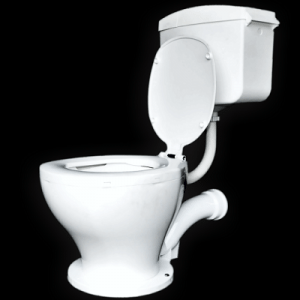
Agriculture
January 4, 2024
Implemented by
Envirosan
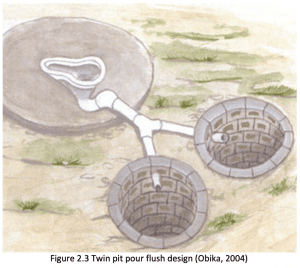
Agriculture
January 6, 2024
Implemented by
Sustainable Sanitation and Water Management (SSWM)
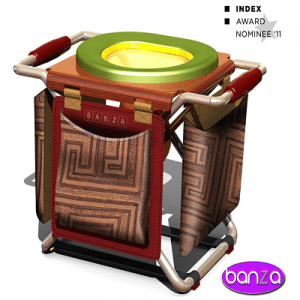
Agriculture
August 8, 2024
Implemented by
Patrick Kiruki, Banza Sanitation
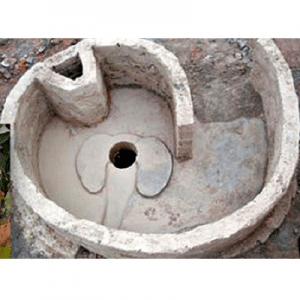
Agriculture
August 13, 2024
Implemented by
The Africa Trust
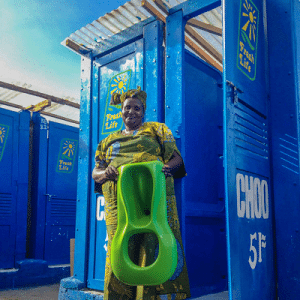
Agriculture
August 17, 2024
Implemented by
Sanergy
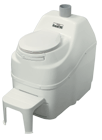
Agriculture
August 13, 2024
Implemented by
Sun-Mar
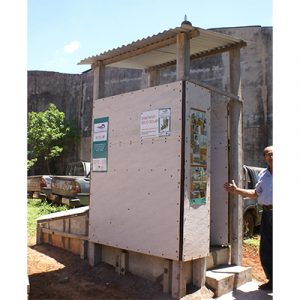
Agriculture
January 17, 2024
Implemented by
Centro de Desarrollo del Habitat y el Medio Ambiente (CEDES/Habitat)
Have thoughts on how we can improve?
Give Us Feedback